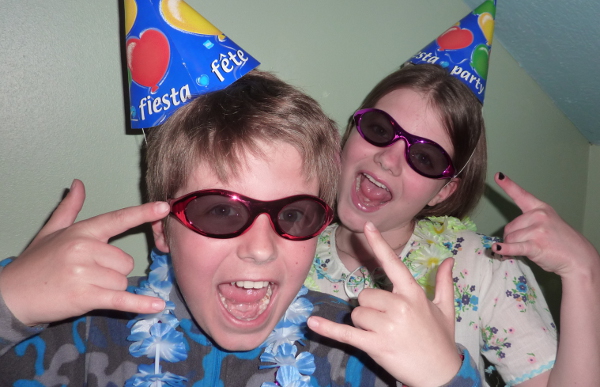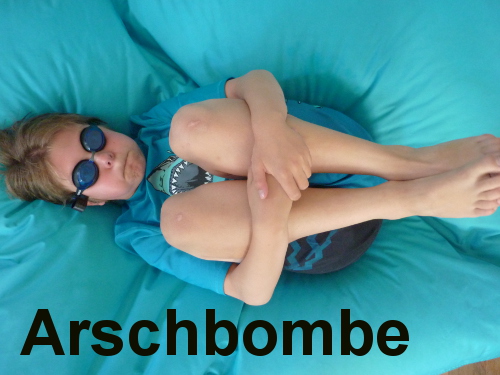
Literally: Ass bomb. It’s none of those things you’re thinking. Not even close. It’s not even gross. And in America we use our own militaristic lingo to describe it: The cannonball. That thing you do off the edge of the pool to drench your sister. Straighten a leg out while you’re doing it and you’ve got a jackknife. But Germans don’t do jackknives, they just do Arschbomben. They’re purists.
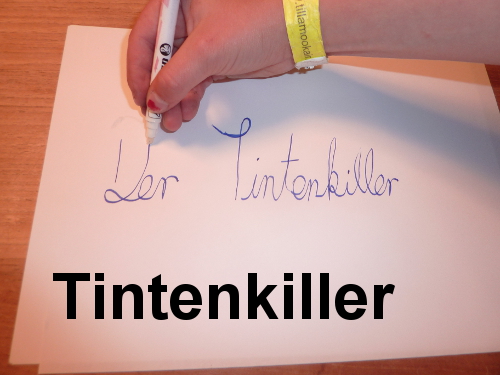
Literally: Ink killer. Germans make children learn to write with fountain pens, like 16th century monks. The kids need some way to correct their mistakes and that way is Tintenkiller. It kills the ink so it is no longer alive on the page. Most German elementary school kids believe the magic ingredient in Tintenkiller is animal urine, specifically bull urine. And yet they use it happily every day.
In America we had the No. 2 pencil with an eraser. But Germans sometimes like to deny technological advances and so, during writing class, they make their children live as though there is not yet running water. Or penicillin. But Tintenkiller.
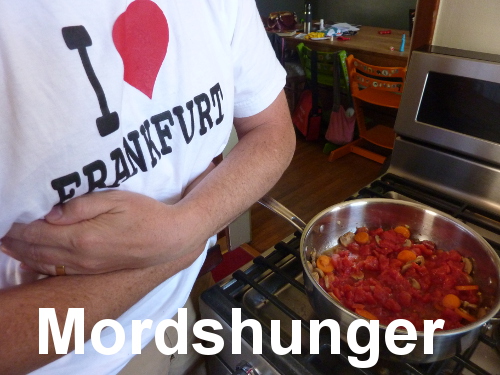
Literally: Murderous hunger. I was well into my 30s before I ever heard the word “hangry”, that thing you get when you’re hungry and everyone is annoying as F–k. Like Gilbert Godfried. The kind of annoyed that makes you leave a restaurant because you think the service is too slow only to discover on the sidewalk that you’re still super hangry. And now annoyed at your own impatience. And also hungry.
If you’ve never heard the word “hangry” before and you’re a little thick, it’s a combination of “hungry” and “angry”. But Germans don’t have a word like that because it would be sauunger (sauer hunger) or bönger (böse hunger), which make no sense. In Germany it’s murderous hunger. It means you’re really, really hungry. So hungry you could kill someone.
But not eat them.
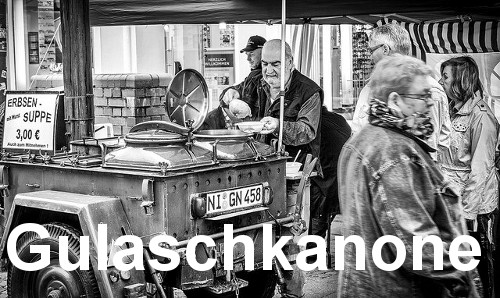
Literally: Goulash cannon. The other words on this page make sense at some level. We might have even figured out their meaning ourselves if we didn’t have German friends. But Gulaschkanone makes no sense. Not even close. A Gulaschkanone is a giant vat of goulash, which is a great stew of meat, tomatoes and paprika. Best served with bread dumplings and a cold beer, unless you’re underage, in which case don’t get caught with the beer.
The Gulaschkanone is most often loaded during parties and festivals and is more often than not a surplus field kitchen. Of course the German army – the Bundeswehr – is the biggest source of goulash cannons. You line up to get a bowl of goulash from the cannon. Usually the guy serving is in a good mood.
Be forewarned, a Gulaschkanone is not always loaded with goulash. Sometimes it’s full of pea soup. But they’ll still call it a Gulaschkanone. A Gulaschkanone with Erbsensuppe (pea soup).
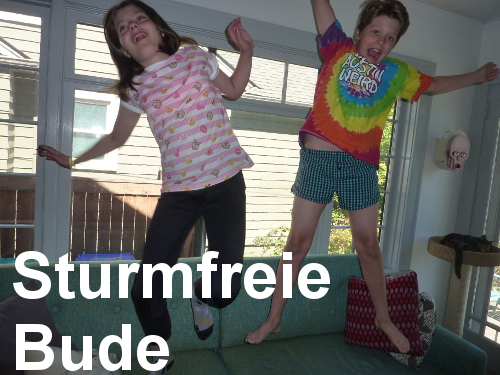
Literally: Storm-free abode (Bude is German slang for your place of living. Your crib. Your pad). I speak pretty good German. But I don’t always really, really know the meanings of German words and sayings. Often I just go with instincts. The same instincts that had me ordering erections at the cafe for months. Sturmfreie Bude is one of those times. Germans use it when they have the house to themselves — like when the parents are off to Mallorca or the kids are at camp, helping to write automotive emissions software.
“Great!” your friends would say, “Sturmfreie Bude!” Up until five minutes ago I assumed that meant the house is clear and you can storm in, like an army. Throw in some flashbangs, get out your battering ram and storm into the house because there’s no one in there.
But I looked it up over at Deutsche Welle and the killjoys over there say it means that the house is free of being stormed. No one’s going to storm in and interrupt you while you do whatever it is you do when you have Sturmfreie Bude.
That sounds slightly lascivious but since the family’s off traveling around Europe and I happen to have Sturmfreie Bude, I can tell you exactly what I do: Hang out on our bed with the cats and watch Netflix.
The middle-aged married bachelor’s version of Netflix and Chill.
Sturmfrei!
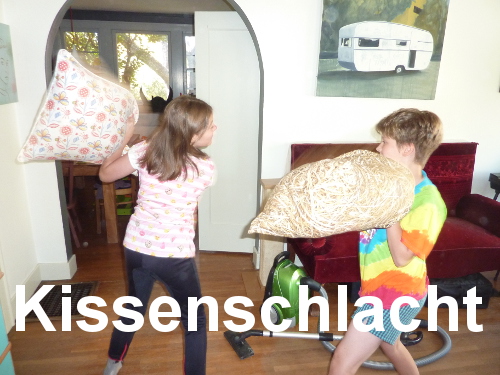
Literally: Pillow slaughter (ok, ok, Schlacht also means battle). So the English version, pillow fight, isn’t much different. My kids were just looking for a reason to have a pillow fight.
5 Comments
